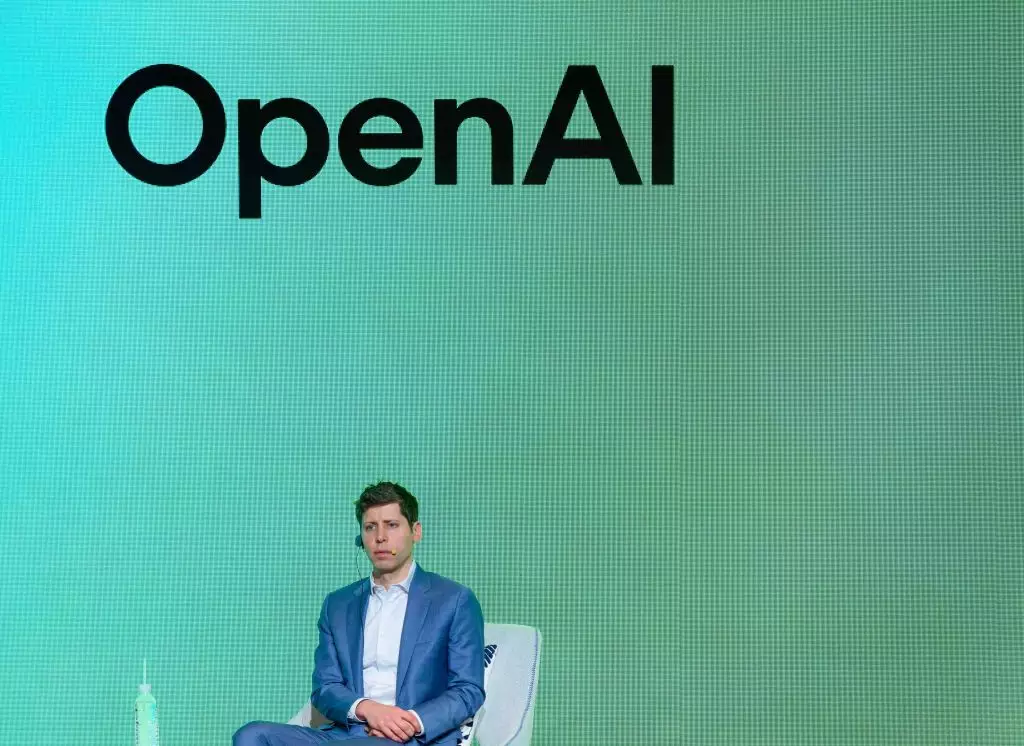OpenAI, once a beacon of hope in the artificial intelligence landscape, now finds itself embroiled in a bitter feud with its co-founder, Elon Musk. This dramatic legal battle, which has seen no signs of reconciliation, raises questions about not only the future direction of AI but also the ethical implications of competing visions for its development. Founded in 2015 as a nonprofit with a noble mission—to ensure that AI technology benefits all of humanity—OpenAI has evolved over the years, inciting the ire of Musk, who accuses the organization of straying from its original purpose.
Musk’s allegations stem from OpenAI’s shift away from its nonprofit origins to a capped-profit structure in 2019, with intentions of transitioning once again into a public benefit corporation. For Musk, who once championed OpenAI’s mission, this perceived betrayal provokes outrage as he claims the company is abandoning its charter to prioritize financial gain. Yet, as the narrative unfolds, it becomes essential to analyze how motives and ambitions intersect in the rapid expansion of AI technology.
The Courtroom Drama: OpenAI’s Counterattack
In response to Musk’s claims, OpenAI has filed a counter-suit that reflects both resilience and fear. In a recent legal filing, the AI organization asserted its need to protect against “unlawful and unfair action,” seeking to hold Musk accountable for his damaging rhetoric and actions. OpenAI’s defense centers around its commitment to its mission and the potential derailment caused by Musk’s continuous attacks, which they argue threaten not only the company but also the entity’s ability to act in the public’s interest.
The filing is not merely a defensive maneuver; it signifies an escalating urgency to safeguard the future of AI governance. By drawing attention to Musk’s supposed manipulative tactics—such as a notorious fake takeover bid—OpenAI posits that this ongoing battle is no innocuous dispute but rather a significant threat to responsible AI development.
The Ethical Dilemma: Profit vs. Purpose
This legal saga isn’t just about one billionaire’s grievances; it taps into a broader ethical dilemma concerning the commercialization of AI. As OpenAI navigates its for-profit aspirations, the worry among various stakeholders—nonprofits and labor organizations alike—is palpable. Critics like the California Teamsters argue that this shift subverts the organization’s charitable mission. To them, the transition could signify an opaque future where technology primarily serves corporate interests, rather than addressing societal needs.
Interestingly, OpenAI defends its transformation by emphasizing that the restructured model will fortify its nonprofit endeavors, promising increased funding for altruistic projects in healthcare, education, and scientific research. However, the question remains: can profit and purpose coexist harmoniously, or will the former inevitably consume the latter?
The Stakes are High: A Race Against Time
Compounding the drama is the looming deadline OpenAI faces to complete its for-profit conversion by 2025 to protect its financial interests. The stakes are incredibly high—not just for OpenAI but for the future of ethical AI governance globally. With Musk’s lawsuit paving the way for a jury trial set for Spring 2026, OpenAI must strategize carefully. The challenges in front of it are replete with nuances that could dictate not only its survival but also shape the framework of AI regulations that come to define this burgeoning industry.
The urgency in OpenAI’s rhetoric suggests a belief in its mission to foster beneficial AI innovations—a sentiment that appears lost on Musk, who has veered into adversarial territory. Will OpenAI emerge stronger through this turbulent legal process, or will it find itself mired in a quagmire that compromises its mission and operational integrity?
A Battle for the Future of AI
As the world eagerly watches the unfolding drama between Musk and OpenAI, it is critical to consider what this confrontation symbolizes for the future of AI. While Musk once stood on the same side promoting responsible AI, his shift into a role as a challenger exemplifies the profound ideological disconnect in tech innovation sectors.
Ultimately, this saga reveals a compelling yet troubling narrative about accountability, the nature of innovation, and the potential consequences of unchecked ambition. In the race to develop AI technologies, the key question persists: who benefits from these advancements, and at what cost? With both sides in the spotlight, the AI community holds its collective breath, anticipating the impact of this clash of ideals on the broader landscape of technology.

